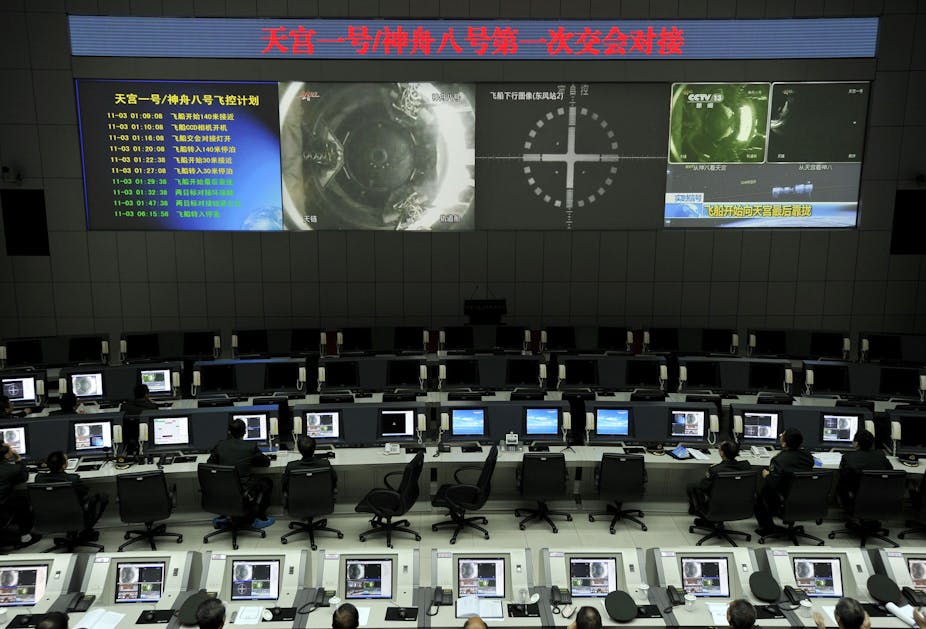China has for the first time successfully docked two orbiting spacecraft, with Thursday’s locking together of the Shenzhou 8 (“Divine Vessel”) capsule and Tiangong 1 (“Heavenly Palace”) module broadcast live on Chinese television.
The docking is a significant step forward in China’s space program, which next month aims to place astronauts into the Tiangong 1 next month as a recursor to a permanently manned orbiting station.
Meanwhile, NASA, which earlier this year retired its shuttle fleet with no successor vehicle in sight, faces serious budget cuts.

Professor Brent McInnes, Director of the John de Laeter Centre for Isotope Research at Curtin University, and a 2007 Australian-American Professional Fulbright Fellow at NASA
Will this spur the US Government to replenish NASA’s funding?
It may spur renewed interest in doing so but the reality is that the United States has severe financial pressures and NASA particularly so, so I can’t imagine that in the short term the US can do anything to respond to it except watch the Chinese programme with great interest.
In the US, it’s 9.5 per cent unemployment, realistically it’s probably 12 to 13 per cent when you count people who have just stopped looking for work.
It’s pretty dire.
Do you expect China to have any ambition to mine the moon or nearby planets?
No, there’s no realistic prospect of anybody mining any asteroids or planets in the next couple of centuries until rare minerals get extremely rare on earth. It’s not economic.
What about China pursuing exploration or manned bases?
I definitely think China will be leading the way in terms of exploration - absolutely. What they’re demonstrating now is they can produce technical excellence in low-Earth orbit, although they did send a probe to orbit the moon.
They’re demonstrating all the capabilities necessary to show international leadership.

Mona Chung, Lecturer in International Business and Management, Deakin University
How is the space program seen in China?
Much of the space program would be classified as a top state secret. So we really wouldn’t know the real capacity of the program at all. Obviously to a majority of the Chinese, the space program would be classified as a state secret. What is known in the public domain would be very little.
Chinese people themselves and the Chinese Government clearly do look at the space programme as part of the national pride. The way of demonstrating their capacity would be to demonstrate a few things to the Western world [through the space programme]: their technical skills and their financial capacity. And that the Chinese are very intelligent people - they would like to demonstrate that as well.
Is there popular disquiet about the money spent on the space programme?
This would have come out of the defence budget - the secret part of the defence budget for research and development. In that sector, the so-called budget would be very different to our concept of a budget. They can pretty much spend what they want. Not like in a democracy where you have a budget and that’s published. In a centrally planned economy you don’t have a publicly published, detailed budget.

